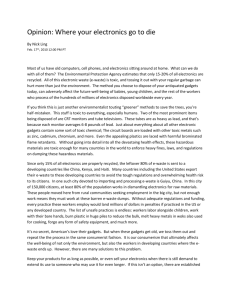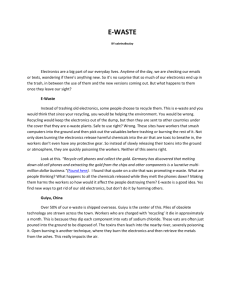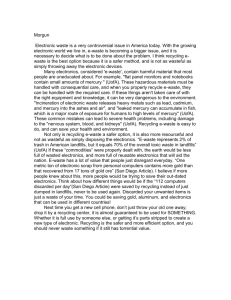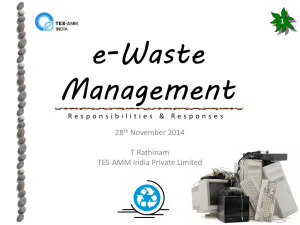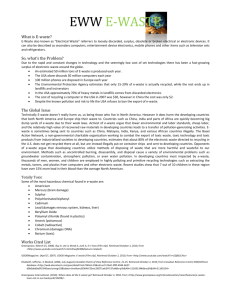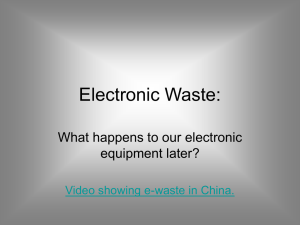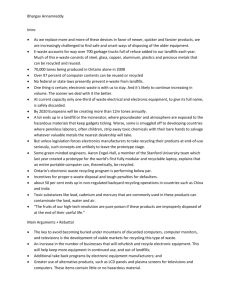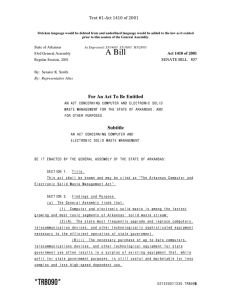E-waste exportation is not an accepted or venerated practice, but
advertisement
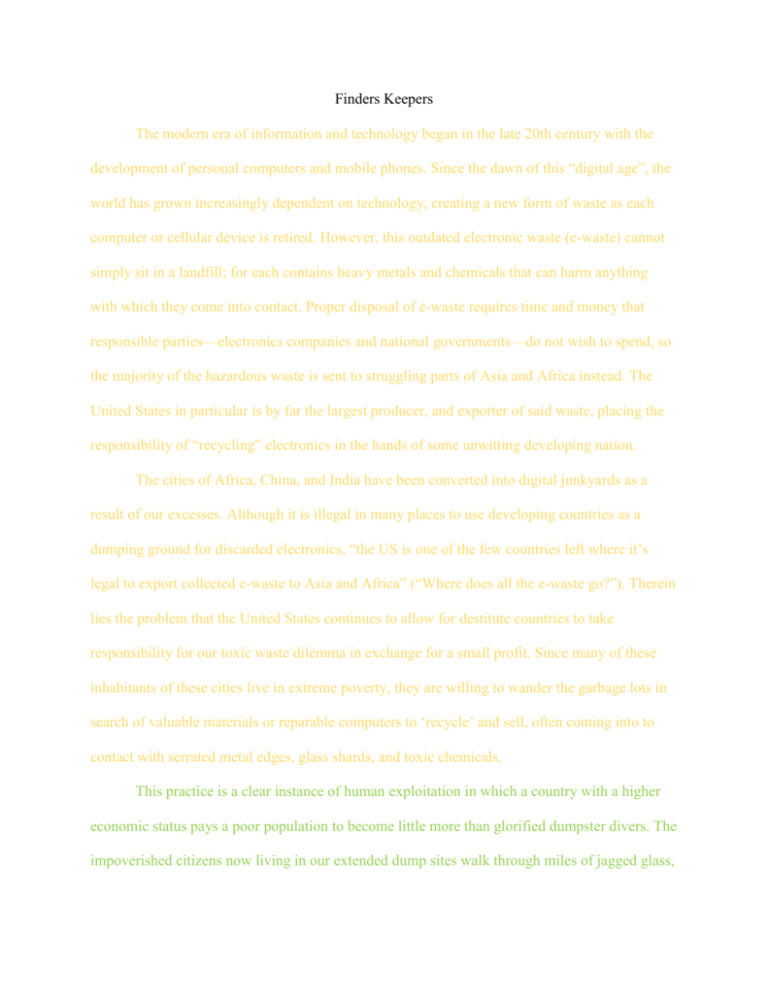
Finders Keepers The modern era of information and technology began in the late 20th century with the development of personal computers and mobile phones. Since the dawn of this “digital age”, the world has grown increasingly dependent on technology, creating a new form of waste as each computer or cellular device is retired. However, this outdated electronic waste (e-waste) cannot simply sit in a landfill; for each contains heavy metals and chemicals that can harm anything with which they come into contact. Proper disposal of e-waste requires time and money that responsible parties—electronics companies and national governments—do not wish to spend, so the majority of the hazardous waste is sent to struggling parts of Asia and Africa instead. The United States in particular is by far the largest producer, and exporter of said waste, placing the responsibility of “recycling” electronics in the hands of some unwitting developing nation. The cities of Africa, China, and India have been converted into digital junkyards as a result of our excesses. Although it is illegal in many places to use developing countries as a dumping ground for discarded electronics, “the US is one of the few countries left where it’s legal to export collected e-waste to Asia and Africa” (“Where does all the e-waste go?”). Therein lies the problem that the United States continues to allow for destitute countries to take responsibility for our toxic waste dilemma in exchange for a small profit. Since many of these inhabitants of these cities live in extreme poverty, they are willing to wander the garbage lots in search of valuable materials or reparable computers to ‘recycle’ and sell, often coming into to contact with serrated metal edges, glass shards, and toxic chemicals. This practice is a clear instance of human exploitation in which a country with a higher economic status pays a poor population to become little more than glorified dumpster divers. The impoverished citizens now living in our extended dump sites walk through miles of jagged glass, chemicals, and wires because there is no other viable option for income. They rummage through our trash to repurpose our old cell phones and tablets for the compensation that the US provides for such services in storage sites. Meanwhile, toxic elements within the electronics—cancercausing mercury, lead, arsenic, etc.—invade their water, air, and bodies. The US may be better off financially to send its e-waste elsewhere, but the morality of this proud nation decreases with each trash shipment. E-waste exportation is not an accepted or venerated practice, but one that many people are just unaware of. Unsuspecting that their old laptops and iPhones are being sent overseas to foreign landfills, it is only natural that many are unknowing of the consequences as well. These ordinary individuals inadvertently contribute to the problem every day, tossing broken tablets or antiquated computers away with regular trash. On the other hand, the government big electronic companies like Sony or Hewlett-Packard feel justified in their action, seeing as they provide funds to struggling populations. With the effects of our dumping occurring on the other side of the world, the e-waste issue reflects the saying “out of sight, out of mind.” In the future there will be no more space for an e-waste dump, because according to the United Nation's environmental initiative Step Report: “e-waste...is now the world’s fastest growing waste stream” (par. 2). Exporting e-waste should be made illegal in the United States to protect the countries to which we have caused irreversible damage. Large corporations should have to provide a way to safely dispose of its products, giving peace of mind to their customers in knowing that no one will be hurt by their old flip phones. Although it will be expensive to build and maintain proper recycling facilities, it is necessary to have a safe space for the biggest source of waste in the modern world. Furthermore, as an individual you can prevent the exportation of e-waste by sending old electronics directly to any of the very few existing recycling plants, do not just throw them away with your morning coffee grounds. Sooner rather than later we will have to deal properly with the waste issue, and there is no better time than the present to take back responsibility for our waste, as well as the moral high ground. The health and well-being other countries, environments, and populations is too steep a price to pay for foreign garbage lots and fatter wallets. Works Cited "Step Report." Step Annual Report 2013/2014. United Nations, 1 Jan. 2014. Web. 11 Nov. 2015. "Where Does All the E-waste Go?" Greenpeace.org. Greenpeace International, 21 Feb. 2014. Web. 11 Nov. 2015.


